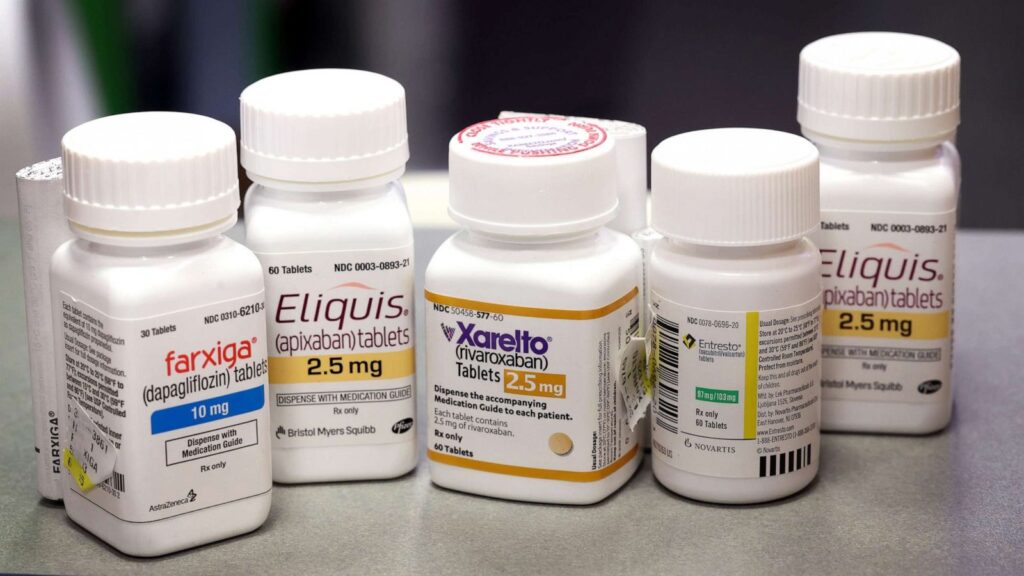Introduction
On Tuesday, August 29, the White House disclosed the initial set of 10 drugs slated for Medicare price negotiations. This novel approach is anticipated to lead to significant cost reductions for beneficiaries of Medicare, particularly for diabetes medications. Among these, several vital diabetes drugs are included, namely:
1. Jardiance (empagliflozin)
2. Januvia (sitagliptin)
3. Farxiga (dapagliflozin)
4. Fiasp (insulin aspart)
5. NovoLog (insulin aspart)
Reasons for Price Decrease
The origin of these new price negotiations traces back to the Inflation Reduction Act, which managed to secure passage through Congress in August 2022 along partisan lines. While encompassing diverse domains like taxation, energy, climate, and healthcare, this act spotlighted individuals dealing with diabetes.
Initially, the legislation aimed to limit insulin copayments to $35 per month for all privately insured Americans. However, despite some bipartisan support, this provision faltered in the Senate. Despite this setback, the Inflation Reduction Act persisted in its pledge to provide substantial savings for many seniors battling diabetes. These savings include:
Reduced insulin copays under Medicare, capping costs at $35 per month (though some newer insulins might not be covered).
Prescription drug out-of-pocket expenditure capped at $2,000.
Before these alterations came into effect in 2023, an analysis by experts from Yale University uncovered that nearly 20 percent of Medicare beneficiaries reliant on insulin encountered “catastrophic” levels of expenditure to cover their medication.
Tip: Please fill out this form to determine whether or not you or a friend are eligible for a CGM.
In addition, the act empowered the federal health secretary to engage in price negotiations for a select group of crucial yet expensive drugs. This has led to the unveiling of the first medications to undergo this novel cost-reduction procedure.
Diabetes Medications Affected by Price Cuts
The diabetes medications slated for price cuts include:
- Jardiance (empagliflozin)
- Januvia (sitagliptin)
- Farxiga (dapagliflozin)
- Fiasp (alongside other Novo Nordisk insulins, encompassing NovoLog)
Both Jardiance and Dapagliflozin fall under the category of SGLT2 inhibitors, functioning by lowering blood glucose levels through inhibiting kidney reabsorption of sugar, thereby facilitating its excretion through urine. These inhibitors have gained popularity as a primary treatment for type 2 diabetes due to their potential to safeguard against kidney and heart diseases. They are occasionally employed off-label for type 1 diabetes as well.
Januvia operates as a DPP-4 inhibitor, aiding in blood sugar regulation by stimulating insulin secretion and curbing glucagon secretion.
Fiasp, a recently introduced ultrarapid insulin, boasts swifter action than Humalog or NovoLog. Certain insurers, including state Medicare programs, might not fully cover Fiasp due to its classification as a more advanced and pricier alternative to NovoLog.
Even NovoLog, a conventional rapid insulin administered prior to meals or for blood sugar level correction, could experience price renegotiations.
Although the Biden administration identified these drugs as overpriced for American seniors, some experts expressed bewilderment regarding the selections. Notably, Farxiga and Januvia are poised to lose their exclusivity in 2026—the same year the price alterations take effect—making way for the availability of cost-effective generics.
Other Medications Undergoing Price Negotiations
The roster of drugs undergoing price negotiations includes:
- Eliquis (apixaban), serves as a stroke and blood clot preventive.
- Xarelto (rivaroxaban), functions as a safeguard against stroke and blood clots.
- Entresto (sacubitril/valsartan), is utilized for treating heart failure.
- Enbrel (etanercept), is a remedy for psoriasis and arthritis.
- Imbruvica (ibrutinib), is employed in leukemia treatment.
- Stelara (ustekinumab), addressing psoriasis, ulcerative colitis, and Crohn’s disease.
The implementation of these revised prices is set to occur in 2026, as reported by CNBC, unless legal challenges thwart the Biden administration’s plans. Multiple pharmaceutical companies have lodged lawsuits seeking to contest the regulation, potentially escalating the dispute to the Supreme Court.
By October 1, manufacturers are expected to signal their willingness to partake in negotiations. Those abstaining from negotiations could face substantial taxes, and their drugs might be excluded from Medicaid and Medicare formularies. Representatives from the pharmaceutical industry assert that they are being coerced to accept below-market prices, a stance contested by the government.
Must Read About: Complex Relationship Between Diabetes and Sleep Disorders
The magnitude of Price Reductions
As per CNN, the Centers for Medicare & Medicaid Services (CMS) will propose payments “at least 25 percent to 60 percent” lower than the average manufacturer’s price, varying based on the specific drug. For context, a month’s supply of Januvia can easily surpass $500 without insurance.
While the current savings might not appear extraordinary, these negotiations represent only the initial round between CMS and drug manufacturers. The Inflation Reduction Act bestows the government organization with the authority to negotiate prices for a growing array of drugs in the forthcoming years. The Congressional Budget Office anticipates cumulative savings of $100 billion over the ensuing decade.
Joe Biden, the Vice President, made the observation that Big Pharma charges Americans prices that are more than three times more than the prices they charge in other nations just because they can. I think it’s outrageous. That’s why these negotiations matter.”
Conclusion
In conclusion, the White House’s unveiling of the first set of drugs slated for Medicare price negotiations marks a significant step toward potentially reducing healthcare costs for seniors, particularly those struggling with diabetes. This initiative is driven by the Inflation Reduction Act and demonstrates the government’s commitment to ensuring access to essential diabetes medications at more affordable prices.


